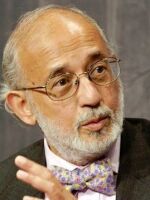Seventy years ago this month, documents that effectively brought an end to World War II were signed in a formal ceremony in Tokyo Bay aboard the battleship USS Missouri.Many key events led up to this day, but two that stand out in my mind occurred when the U.S. dropped atom bombs on Hiroshima and Nagasaki. Hiroshima, especially, has become synonymous with the power of the Atomic Bomb, and for death and destruction on a truly massive scale.
The bomb dropped on Hiroshima weighed a mere 400 pounds, but within seconds, the city was incinerated, instantly killing 80,000 of its citizens. Many more were to die in succeeding years. Ever since, the world stops to remember that fateful morning and tries to fathom its meaning.
President Truman decided to drop the bomb because the Japanese had refused America’s offer to end hostilities in return for unconditional surrender. He knew an American invasion to force Japan’s surrender would cost many more thousands of American lives. So he made the only decision I believe he could have made as commander-in-chief: to demonstrate the U. S. ability to completely destroy Japan - perhaps within days.
As terrible as the use of that first Atomic bomb was, I feel the real lesson of Hiroshima is war’s capacity to destroy the concept of morality on all sides - as the killing of innocent civilians to break the will of opponents becomes accepted strategy. No saints remain, only sinners.
In WW2, the Germans hurled V-1 rockets in the general direction of crowded London – killing more than 6,000 Londoners. With no guidance system, the V-1 ran on rocket power until it ran out of fuel. That was the terror of it: to kill Londoners in their homes and break their will to fight.
Similarly, the U.S. and Britain sent thousands of bombers to destroy the historic German city of Dresden, and kill between 35,000 and 135,000 people - mostly civilians.
Dresden was destroyed by conventional bombs and Hiroshima by an atomic weapon, but pictures from both, after their destruction, appear identical.
I’ll admit that nuclear weapons far, far outrank conventional bombs on the scale of potential destruction. But what I take away from Hiroshima was captured in a poem by Rudyard Kipling many years ago, when he wrote:
We are very slightly changed
From the semi-apes who ranged
He that drew the longest bow
Ran his brother down, you know
As we run men down today...





